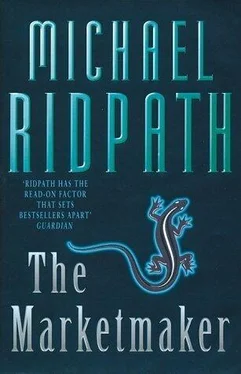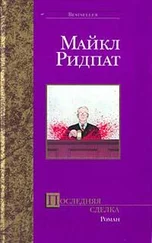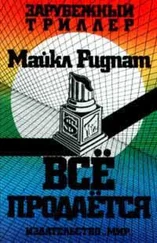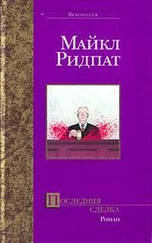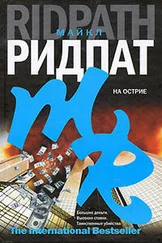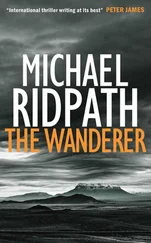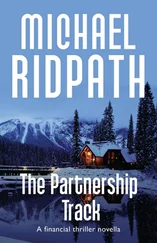‘Is it true Eduardo killed someone once? A student?’ I asked.
Isabel didn’t answer immediately, her head lay motionless on my chest.
‘No, it’s not true,’ she said at last.
‘It wouldn’t have surprised me if he had. But I suppose it’s just another myth.’
‘Not entirely.’
I stayed silent, waiting for her to continue.
‘It was Ricardo who killed the student.’
‘Ricardo?’
She propped herself up on her elbow. ‘Oh, it was a complete accident. It was at a party in Caracas. The other guy was drunk and took a swing at Ricardo, who was chatting up his girlfriend. Ricardo hit him harder than he meant to, and the guy fell back over the balcony, four floors up. Apparently it was very messy.’
‘So Eduardo had nothing to do with it.’
‘Not quite. There were witnesses, and they were the student’s friends, not Ricardo’s. The police came and Ricardo was soon in jail. They were about to work on him for a “confession“, when Eduardo sorted it all out.’
‘How?’
‘I don’t know. Even then Eduardo had a flair for that sort of thing. And Ricardo walked free.’
‘Ricardo told you this, presumably?’
‘Yes. He still feels guilty about it. And grateful to Eduardo.’
‘I bet he does.’ I sympathized with the guilt. I clearly remembered one night in Oxford when Jamie had become involved in an argument with a six-foot-six-inch University of Cape Town rugby player. Height never bothered Jamie: it just made his head-butts more effective. The South African had staggered back into the road. A van was driving fast down the empty High Street, and braked hard. It hit the South African, but only gently, and no damage was done. But if the van driver’s reactions had been just that little bit slower...
‘Eduardo and Ricardo seem to have a very strange relationship,’ I said. ‘That must be why.’
‘It’s not just that. I think a lot of it has to do with their father. Apparently, he was quite a successful businessman. The brothers never saw much of him, or of their mother who made a career out of spending the money her husband earned. Ricardo worshipped his father. He said he was always trying to prove himself to him, but his father never took any notice so Ricardo just tried harder.’
‘Yes. He told me something similar himself. But what about Eduardo?’
‘I think that Ricardo is the Argentinian and Eduardo the Venezuelan. From what I understand, their mother wanted Eduardo to be educated in Venezuela. Ricardo never lived there as an adult, but Eduardo spent a lot of time there. The flashy clothes, the cars, the speedboats, the girls, the apartments in Miami. He’s a typical Venezuelan rich kid.’
‘That’s quite a car he owns,’ I said.
‘What, the “Testosterone”? The amount of times he’s tried to get me into that thing!’
I grinned. I couldn’t really blame him.
‘Anyway,’ Isabel continued, ‘Ricardo’s father drank. In the early eighties his businesses fell apart when the oil price crashed, and he tried to drink his way out of it. He died at the age of sixty-two. Ricardo was twenty-seven.
‘You know how seriously Ricardo takes things. I think he saw it as his responsibility to look after his mother and his brother. Especially his brother. Eduardo was getting himself into all sorts of trouble with drugs. Ricardo found the money for some fancy detox clinic in America and persuaded Eduardo to go.’
‘So Ricardo has always helped Eduardo out?’
‘It’s a two-way thing. They both owe each other a lot of favours. I’m not sure they even like each other. Eduardo thinks Ricardo’s too squeamish, and a control freak. But he’s jealous of Ricardo’s success and wants to be a part of it. Ricardo thinks Eduardo has no self-discipline and is a danger to himself as well as other people. They’re both right, of course. But as a result they both think they have to be around to help the other out.’
‘So they need each other?’
‘That’s what they think. I think they’d both be better off having nothing to do with each other.’
She swung out of bed, and walked, naked, to the window. I followed her with my eyes.
‘Oh, look,’ she said. ‘I think you’re going to see a classic Rio rainstorm.’
I joined her, and wrapped my arms round her. A thick line of black lurked on the horizon. As we watched, it grew, gathering itself into a dark blanket that moved swiftly over the sky towards us. The breeze, blowing in through the open window, became softer, heavier. The city, still in sunshine for a few moments more, cowered in front of the enveloping clouds. Then the blanket reached us, blacking out the sky and dropping itself upon us in a torrent of water. We let the giant drops splash into the room through the open window. Below us, the courtyard erupted into thousands of tiny fountains as the rain struck it, and the surface of the swimming pool was shattered into a myriad of angry whirlpools.
‘God, what a sight,’ I said.
‘We’d better get going. The traffic in Rio becomes a nightmare in a storm like this.’
We showered, dressed, and then scurried to a taxi beneath one of the hotel’s white umbrellas. As I scrambled into the back seat after Isabel, I thought I caught sight of someone I recognized. I turned to look as we pulled off.
‘What is it?’ she asked, a drop of water dangling appealingly from her nose.
‘I thought I recognized the driver of the car behind. I could have sworn he was waiting for someone at the airport this morning.’
‘Where?’ She turned to look behind us.
The rain fell heavily on the rear window and created a curtain of water behind us.
‘I can’t see him now. Or his car. It was a Fiat, I think. Blue.’
We both strained to see through the rainstorm. Nothing.
‘Are you sure?’ Isabel asked.
‘To be honest, no. I might just be imagining it.’
She squeezed my hand. ‘You’re getting jumpy after what happened last time. Rio isn’t that dangerous, you know.’
‘You’re probably right,’ I said, but nevertheless I did check behind every now and again. I didn’t see anything.
We were meeting Luís at the Rio Yacht Club. The journey took about three-quarters of an hour. The traffic slowed to a crawl. Torrents of water gushed down any small incline, often reaching up to the tops of the struggling cars’ wheels.
It was dark by the time we reached the Yacht Club. Luís was already there, and gave Isabel a huge hug, which she returned warmly. He seemed genuinely happy to see me too, which pleased me. The club was, of course, next to a small marina, and we could just make out the sailing boats, bobbing in the rain-lashed sea. Eventually, the downpour softened to a more recognizable rain, and it was possible to see the buildings of Botafogo across the bay, and the imposing shape of Sugar Loaf mountain, looming high up above us.
I drank the compulsory caipirinhas — I was beginning to realize that no foreigner could avoid them in Brazil — and ate some glorious fish whose name I didn’t quite catch. Luís and Isabel both did a good job of avoiding any difficult subjects, and I didn’t witness a single argument. Isabel seemed happy, very much alive, and she glowed in the attention of her father and me.
‘So, you didn’t want to spend the weekend in São Paulo, Nick?’ Luís asked, with a smile.
‘Isabel didn’t seem very keen on the idea.’
‘Where did you take him?’ he asked Isabel.
‘The Point,’ she said.
‘Ah, very good. Did you like the view, Nick?’
‘Oh,Papai!’
I grinned. ‘One of our poets once said, “Water, water everywhere, nor any drop to drink.”’
This Luís seemed to find very funny. Isabel just looked cross.
Читать дальше
